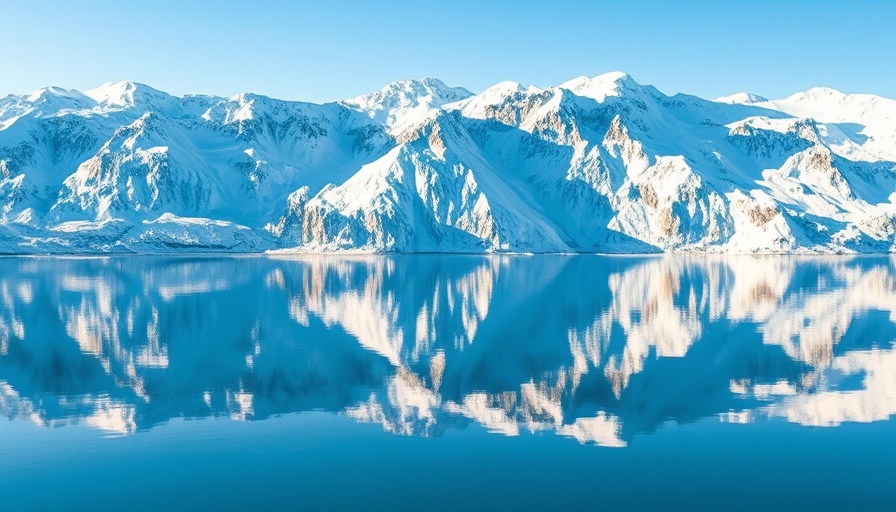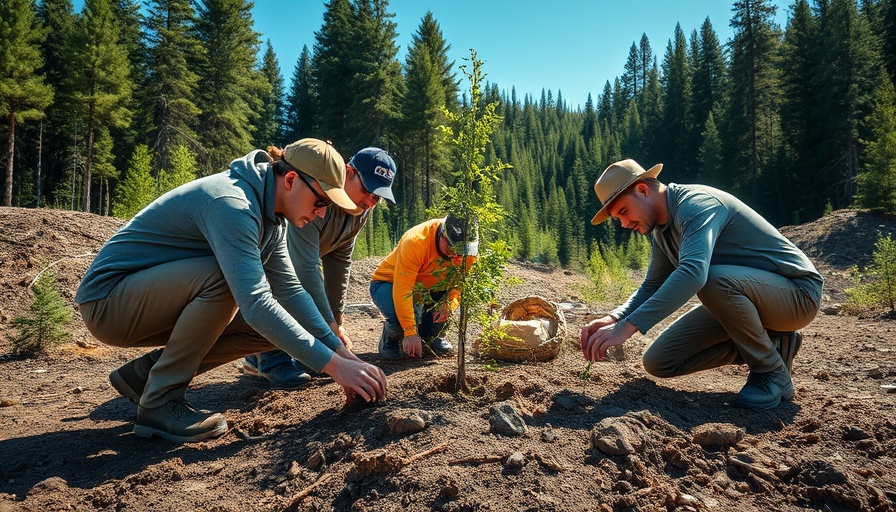
Unprecedented Arctic Heat: A Call to Action
In early February 2025, the North Pole saw temperatures soar to as much as 20 degrees Celsius above the average—a shocking indicator of climate change’s sweeping impacts. This is not just a regional anomaly; it signals a disturbing trend in Arctic warming that could resonate far beyond the polar regions.
The Science Behind the Rise
Leading scientists, such as Mika Rantanen from the Finnish Meteorological Institute, describe this phenomenon as an 'extreme winter warming event'. With readings fluctuating between 0.5 degrees Celsius and -1 degree Celsius at latitudes approaching the 87th parallel, it is crucial to understand what drives these worrying changes. Factors include warm air currents moving towards the North Pole due to a low-pressure system over Iceland and dramatically rising ocean temperatures in the Atlantic.
Arctic Amplification: What It Means for Us
The rapid warming of the Arctic, termed 'Arctic amplification', suggests that this region is heating up at an alarming rate—up to four times faster than the global average. This reality leads to significant ecological transformations, such as accelerated sea ice melt, which has been decreasing at a rate of 13% per decade since 1979. By understanding the mechanics of this amplification, we can better grasp its implications for global weather patterns and ecosystems.
Future Implications: A World Without Ice?
Climate scientists are raising the alarm over the long-term consequences of these trends. A 2023 study highlights the potential for the Arctic to experience ice-free summers as soon as the 2030s, even under low-emission scenarios. Such predictions, if realized, could usher in severe environmental consequences, including rising sea levels and drastic changes to marine ecosystems, potentially impacting global food supplies.
Why It Matters to Health Enthusiasts
For health-conscious readers, understanding the shifts in our world's climate is vital. The warming Arctic not only threatens the environment but poses risks to our health, from increased disease vectors as ecosystems change, to challenges in food security. Technologies aimed at addressing climate change may provide innovative solutions, from bioengineering resilient crops to AI-driven tools for monitoring environmental health.
A Healthier Future Starts with Awareness
The dramatic shifts occurring in the Arctic emphasize the pressing need for awareness and action. Tech-savvy health enthusiasts must consider how climate change could impact their wellness strategies, pushing for sustainable practices and innovative technologies that can combat the ongoing crises. Understanding the implications today ensures a healthier tomorrow for all.
 Add Row
Add Row  Add
Add 




 Add Row
Add Row  Add
Add 



Write A Comment